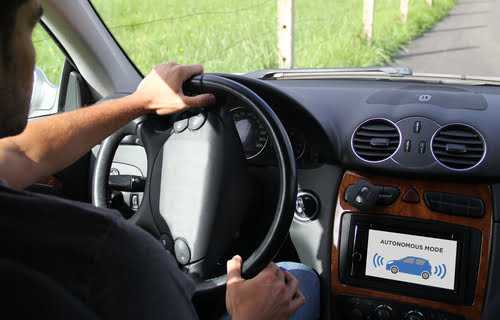Are Driverless Cars Really That Safe?
 Vehicles with autonomous driving capability are all the rage. While fully automated cars are still a few years or decades away, cars that have limited automation are already here. These changes have given rise to an emerging legal landscape. Wagner, McLaughlin & Whittemore, experienced auto accident lawyers in Tampa, is keeping apprised of the impact this new technology is having on personal injury law.
Vehicles with autonomous driving capability are all the rage. While fully automated cars are still a few years or decades away, cars that have limited automation are already here. These changes have given rise to an emerging legal landscape. Wagner, McLaughlin & Whittemore, experienced auto accident lawyers in Tampa, is keeping apprised of the impact this new technology is having on personal injury law.
Does Autonomous Driving Make Cars Safer?
A major argument in favor of driverless cars is that they will make roads safer. The argument is that the vast majority of accidents are caused by human error. Drivers are tired or distracted, or they simply misjudge their driving conditions. Since computers and sensors can’t make these kinds of mistakes, then it follows – the argument goes — that there will be fewer accidents.
While this argument in favor of autonomous vehicles may be correct as stated, there are other factors to consider. Computers and sensors may not make mistakes the way humans do, but they are far from flawless. Current autonomous technology has shown glaring weaknesses in the capabilities of self-driving cars. Sensors can often be fooled by conditions that wouldn’t bother a human operator. These can include light conditions or certain color backgrounds that prevent the sensors from detecting a potentially dangerous object. While a self-driving car can react faster, it cannot predict possible changes in road conditions or driver actions the way a human could and may not avoid all accidents under congested driving conditions.
Current Cars Aren’t Really Driverless
As a lawsuit Tesla faces over its autopilot feature shows, current “autonomous” cars aren’t designed to be truly driverless. The car’s technology is a driver assist that helps keep the car on the road and in its lane and can help to stop the vehicle and avoid most accidents in case the driver gets distracted. This technology can’t handle all conditions, and it isn’t designed to navigate sharp turns or other complex road conditions. Tesla’s technology, which represents the pinnacle of options currently available to consumers, still expects drivers to keep their hands on the wheel and be ready to take full control of the car at any time.
While laws may be changing surrounding driverless cars and fault, both general accident laws and insurance laws haven’t really caught up to the changes. If you are injured in any type of car accident, it is important to contact Tampa personal injury attorneys knowledgeable in this area. The law firm of Wagner, McLaughlin & Whittemore can assist clients who have been injured in any type of auto accident. Let our attorneys help you in filing a claim and maximizing your recovery.

